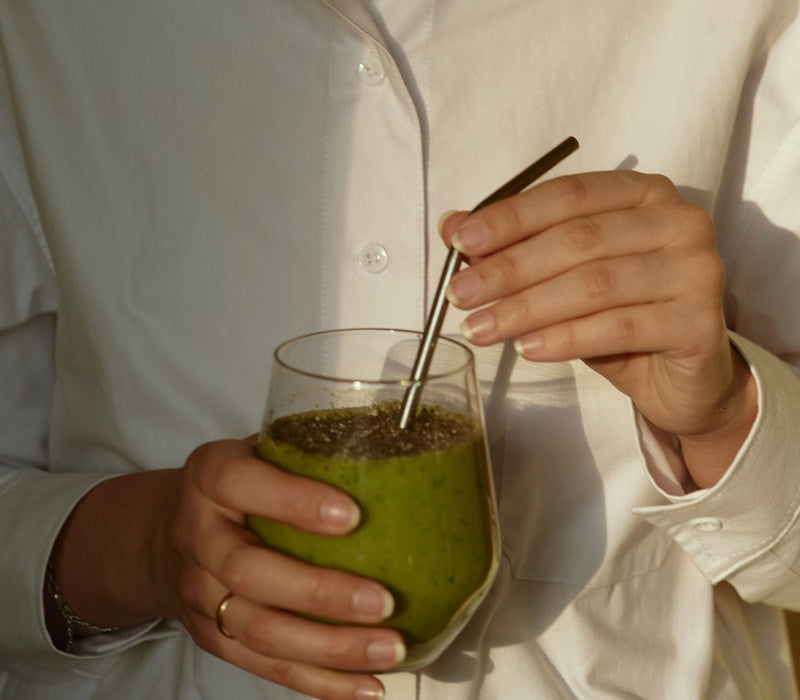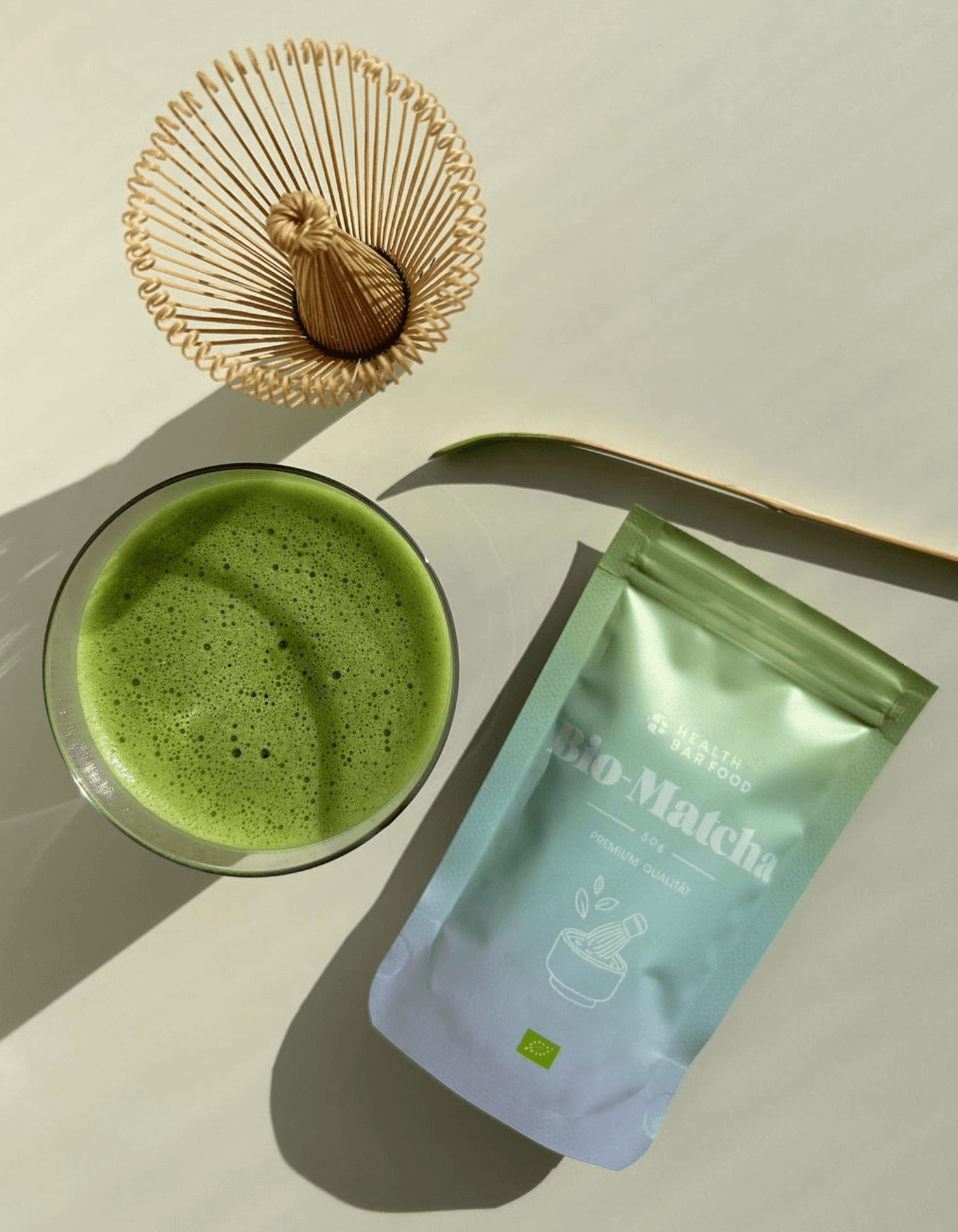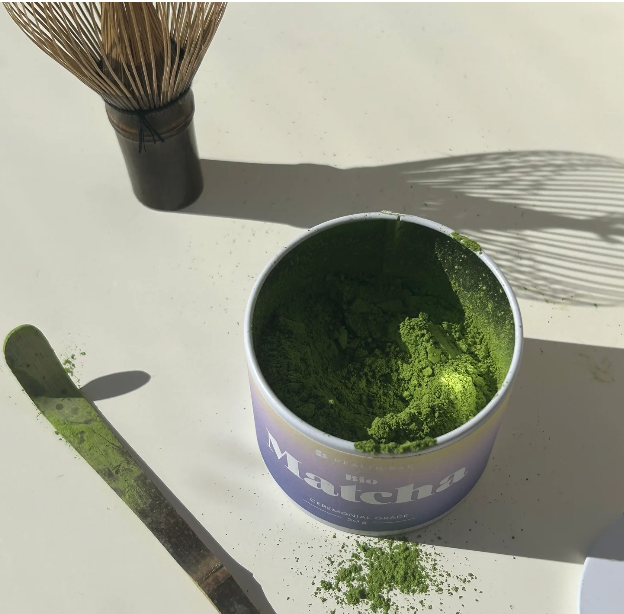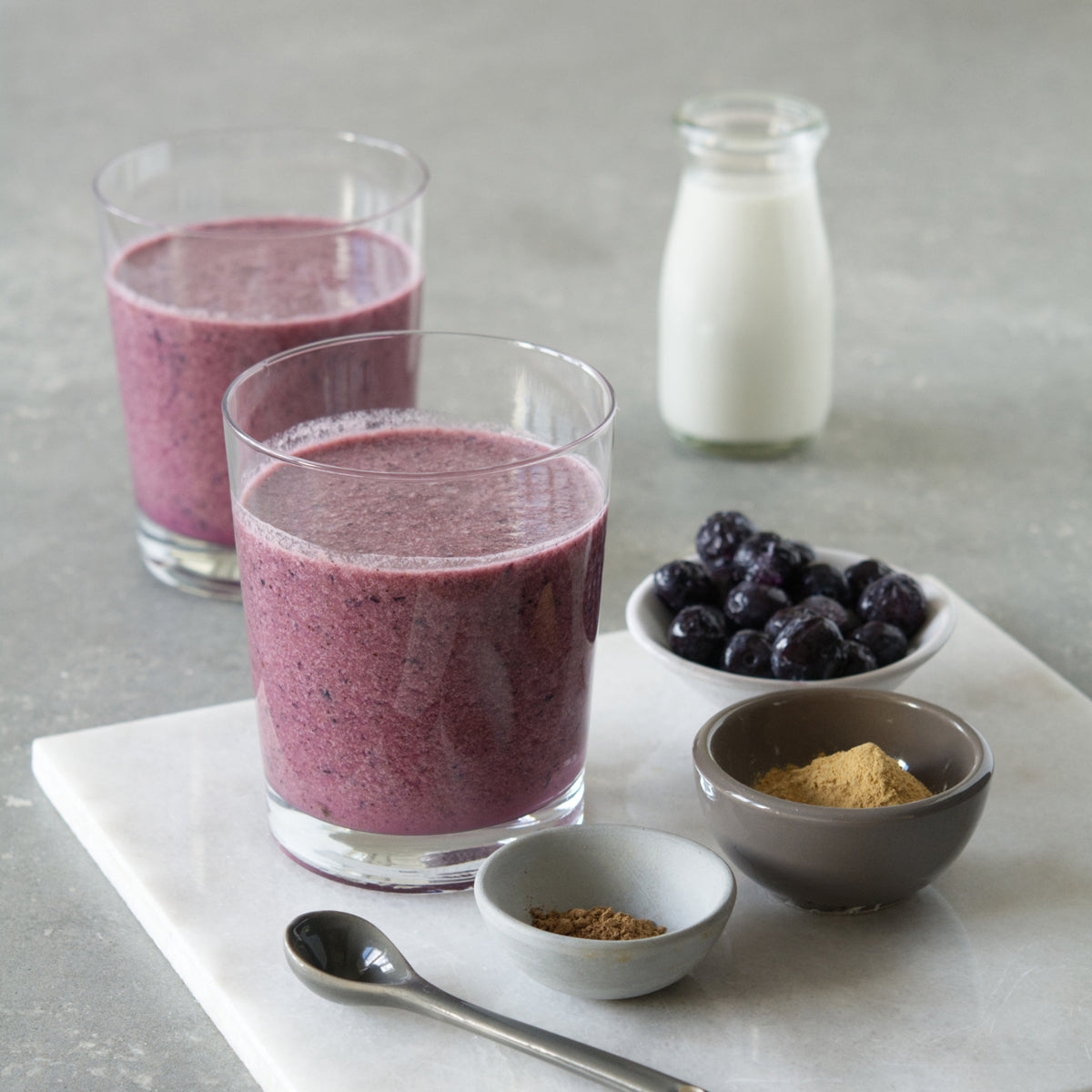Matcha is a type of powdered tea. The word "Matcha" comes from the combination of "Ma," which means powder, and "Cha," which means tea. Both Matcha tea and black tea come from the same plant, Camellia Sinensis. The roots of Matcha can be traced back almost 1,000 years to the Tang Dynasty in China, but it was during the Song Dynasty that powdered tea gained popularity. Chan Buddhists turned the preparation and consumption of powdered tea into a ritual.
In the year 1191, Zen Buddhism and the art of preparing powdered tea were introduced to Japan by the Buddhist priest Eisai. It quickly gained popularity, and by the 16th century, it became a favorite among the upper classes of Japanese society.
Zen Buddhists developed new cultivation methods for the green tea plant, which included shading the plants for up to three weeks before harvesting. This special process imparts nutritional benefits to Japanese Matcha by ensuring a high nutrient density in the leaves, especially in terms of chlorophyll and antioxidant polyphenols. Japanese Matcha also has its own flavor profile, often preferred by Westerners. It is less bitter than Chinese Matcha and is generally described as having an umami taste.
But what exactly is umami? It refers to a savory taste in foods and beverages that is created by the presence of glutamate. Green tea is rich in glutamate, which gives Matcha its rich, savory flavor.
Matcha is gaining popularity among health-conscious consumers worldwide and is available in various forms, such as Matcha shots, lattes, teas, desserts, and ice creams.
Discover the organic Matcha tea from Health Bar
In addition to its delicious taste, Matcha is also considered a healthy beverage with numerous benefits. Here are some of the health benefits associated with consuming Matcha:
- It is rich in catechins, which are natural antioxidants. Antioxidants protect our cells from aging and chronic diseases.
- Some studies suggest that Matcha can prevent liver damage and reduce the risk of liver diseases.
- The caffeine and L-theanine content can improve your brain function, including attention, memory, and reaction time.
- It may have properties that inhibit the growth of cancer cells.
- It can reduce several risk factors for heart disease.
- It boosts your metabolism and fat burning, potentially supporting your weight loss efforts.
Another emerging trend in Matcha consumption is its use as a coffee alternative. Matcha contains significantly less caffeine (24-45 mg per cup) compared to coffee (95 mg per cup). Additionally, the presence of theanine in Matcha is believed to contribute to its calming effect, which can be particularly beneficial during stressful times.
Considering all these mentioned benefits, Matcha is a beverage enjoyed by many without the guilt or anxieties associated with coffee consumption. However, it's important to clarify whether Matcha is safe to consume during pregnancy.
In June 2021, the British Medical Journal published an article impacting recommendations on caffeine consumption for mothers and expectant mothers. Current guidelines recommend moderate caffeine consumption during pregnancy as safe. Moderate consumption means a total caffeine intake of 200 mg per day from various sources like beverages, foods, and chocolate. However, the BMJ article reviewed studies from the year 2000 onwards and concluded that the cumulative scientific evidence suggests avoiding caffeine for pregnant women and those considering pregnancy. According to the article, there are no safe levels of maternal caffeine consumption.
In light of this, moderate consumption is advisable. Choosing Matcha as an alternative can offer a delicious and health-promoting option while gradually reducing caffeine addiction. It is recommended not to consume more than two cups of Matcha per day and not to drink it on an empty stomach. Ideally, enjoy Matcha after your first meal but no later than 3 PM to ensure you can rest well in the evening.
During pregnancy in general, and specifically if you choose to enjoy Matcha or caffeine during pregnancy, it's important to increase your daily water intake.
Until next time, here's to you, Mom!
Liesl
Your resident health advisor.
Health Bar
Matcha tea: Your coffee alternative
And if you're now interested in trying Matcha tea, we have a great offer from Health Bar. Health Bar celebrates Matcha tea and provides you with all the information you need on this topic. With the code BABYBOX15, you save 15% on your purchase at Health Bar (excluding subscriptions, sets, and vouchers).




